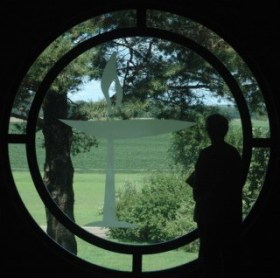What is UU?
 Unitarian Universalism is is a centuries-old, free thinking liberal religion guided by shared values.
Unitarian Universalism is is a centuries-old, free thinking liberal religion guided by shared values.
It is made up of atheists, agnostics, Christians, Buddhists, Jews, Pagans, humanists, and people who do no not identify as any of the above.
You will not find any “official creed” but you will find we have some things we really care about.
We care more about how you act than what you believe.
We care more about the journey of discovery than any specific end point.
We care more about creating community than identifying how we are different.
We care more about creating good in this world than in hoping for good in a world to come.
Our Principles
UU principles are the shared ideals we use to guide our actions. Unitarian Universalists congregations aim to uphold …
- The inherent worth and dignity of every person;
- Justice, equity and compassion in human relations;
- Acceptance of one another and encouragement to spiritual growth in our congregations;
- A free and responsible search for truth and meaning;
- The right of conscience and the use of the democratic process within our congregations and in society at large;
- The goal of world community with peace, liberty, and justice for all;
- Respect for the interdependent web of all existence of which we are a part.
Sources of Our Living Tradition

Unitarian Universalism is a living tradition, current and changing, but rooted in teachings and experiences from a variety of sources:
- Direct experience of that transcending mystery and wonder, affirmed in all cultures, which moves us to a renewal of the spirit and an openness to the forces which create and uphold life;
- Words and deeds of prophetic people which challenge us to confront powers and structures of evil with justice, compassion, and the transforming power of love;
- Wisdom from the world’s religions which inspires us in our ethical and spiritual life;
- Jewish and Christian teachings which call us to respond to God’s love by loving our neighbors as ourselves;
- Humanist teachings which counsel us to heed the guidance of reason and the results of science, and warn us against idolatries of the mind and spirit;
- Spiritual teachings of earth-centered traditions which celebrate the sacred circle of life and instruct us to live in harmony with the rhythms of nature.
Secular humanism was an important force in the founding of the Manhattan Fellowship.
Subscribe to our mailing list to receive weekly announcements and our monthly newsletter in your email.
To learn more about Unitarian-Universalist principles visit the UUA Web Site.
